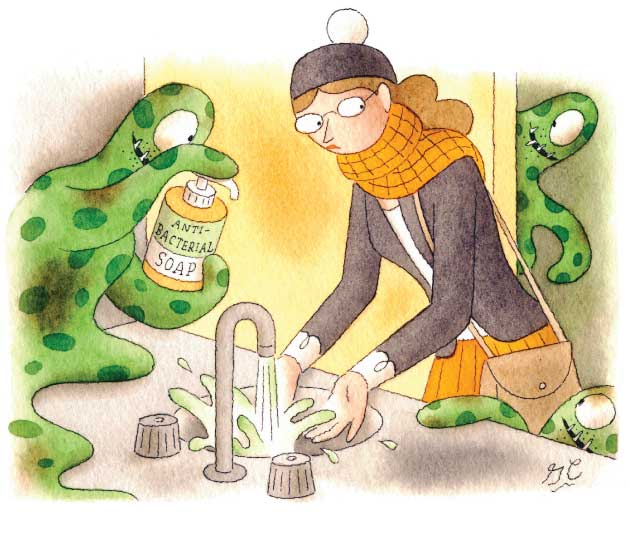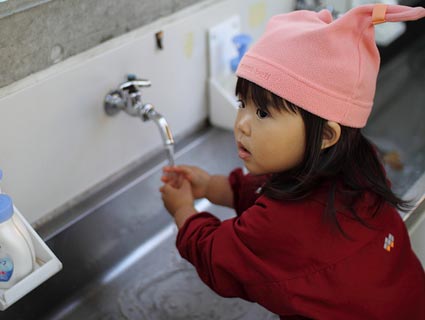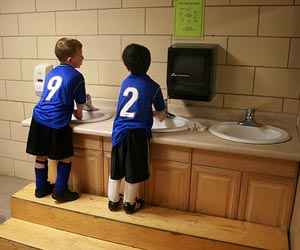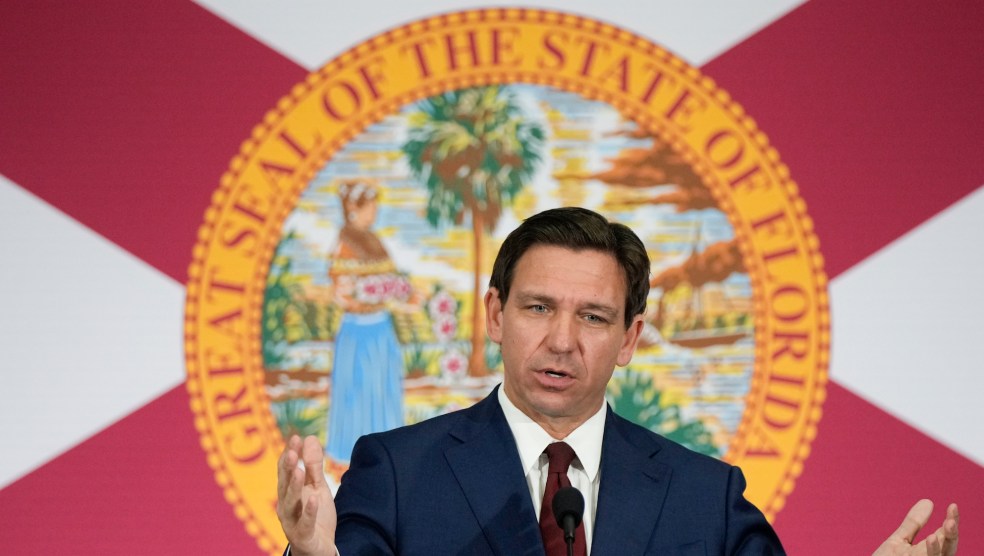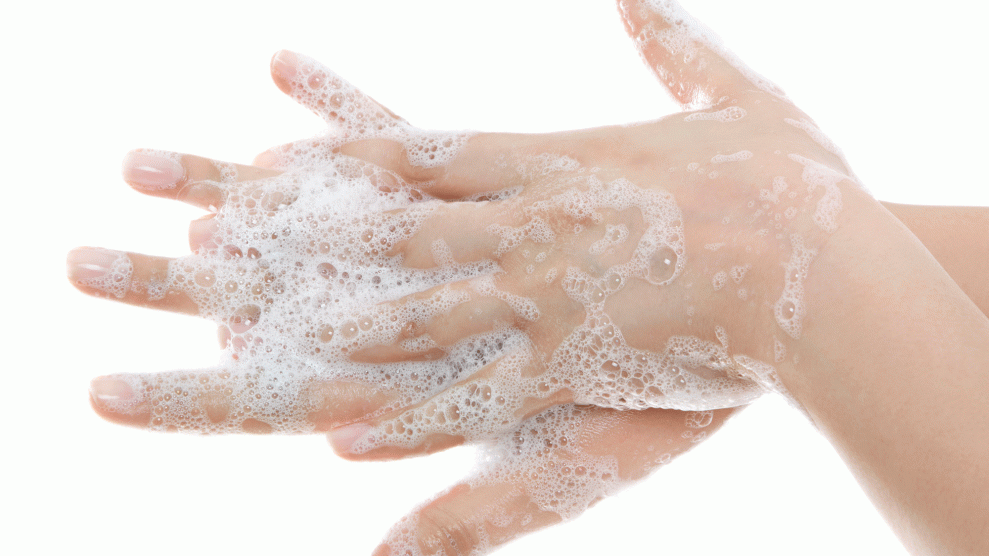
<a href="http://www.istockphoto.com/photo/washing-hands-gm487831024-73175727?st=_p_antimicrobial" target="_blank">stockce</a>/iStock
Last week, after years of deliberation, the Food and Drug Administration announced that it will finally ban most antimicrobial chemicals—including the widely used triclosan—in soaps and body washes. The agency found that not only are these agents no more effective than plain soap and water at preventing illness, but they could actually be dangerous: Mounting evidence suggests chemicals like triclosan can mess with our hormones and may cause muscle weakness. What’s more, chilling research has shown that antimicrobials get rid of beneficial bacteria, creating an environment where really dangerous bugs can thrive.
All of which makes you wonder why they’re allowed in anything. But they’re actually in many things—the market for antimicrobials is worth upward of $1 billion. And thanks to gaping holes in the FDA’s new rule, they’re not going away anytime soon, says Mae Wu, a senior attorney with the Natural Resources Defense Council, whose suit against the FDA prompted the agency’s decision on antimicrobials. “If the FDA doesn’t have enough data to show that it’s safe or effective,” Wu says, “there shouldn’t be a scenario under which it’s okay to use these products.”
Here are five places you’ll still find antimicrobials:
Hospitals: Let’s review this one more time: Science has shown that antimicrobials are no more effective than soap and water at preventing people from getting sick, and these chemicals might even be dangerous. And yet health care facilities—where people are more susceptible to germs, and where doctors and nurses use a whole lot more soap than the general population—are still allowed to use them. In accordance with the NRDC lawsuit, the FDA agreed to issue a final rule on antimicrobials in health care facilities by January 2018, but the rules will be slightly different from those for consumer products. While the makers of consumer antibacterial soaps and body washes had to demonstrate that these products prevented illness, makers of soaps used in health care settings simply have to show that their products reduce bacteria. They also don’t have to compare their products to plain soap and water, notes Wu.
Restaurants: Food handlers do not have to ditch antimicrobial soaps under the new FDA rule. What does that mean? It’s not clear, says Wu. “When I asked FDA what was meant by food handlers, they said that would affect anyone from picking crops to serving in restaurants,” she says. “So that means that, say, restaurant bathrooms could still have these.” The FDA didn’t set a deadline for making a rule on food handling, and that “could take 10 years…or 40,” says Wu.
Toothpaste: Under the new rule, toothpastes can still contain triclosan and other antibacterial agents. The agency says that’s because there’s some evidence that these chemicals do prevent gingivitis. But according to the New York Times, there’s another reason too: the Herculean efforts of the makers of the popular toothpaste brand Colgate-Total, the only toothpaste in the United States that contains triclosan. But given the evidence that triclosan can cause harm, notes the Times, it’s a little odd that the FDA would ban it in products we touch yet allow it in one that we put in our mouths.
Hand sanitizers and hand wipes: Most hand sanitizers and wipes are made with alcohol, but a few contain antimicrobial agents. For reasons that it hasn’t really explained, the FDA has given the makers of these products a year to prove their safety and efficacy. The agency agreed to finalize its rules on hand sanitizers by April 2019.
Basically everywhere else in the whole world: Antimicrobial chemicals are in millions of products: mouse pads, shoe insoles, kitchen countertops, shopping carts, socks, coolers, and toothbrush covers, to name but a few. Regulating those kinds of products isn’t the job of the FDA. In those cases, antimicrobials are used to preserve the material rather than to protect consumers from germs, so they’re considered pesticides and thus fall under the purview of the Environmental Protection Agency. But here’s the catch: Makers of pesticides that preserve materials are exempted from labeling requirements—so you’ll never know whether your socks contain triclosan.
And guess what? Despite the FDA rule, manufacturers can still sell antimicrobial hand soaps and body washes to consumers. In advance of the ruling, consumer product companies began to reformulate their products using one of three chemicals: benzalkonium chloride, benzethonium chloride, and chloroxylenol. Companies have a year to prove that these chemicals work and are safe, and given the soap industry’s history of mighty lobbying efforts to defend antimicrobials, you can bet they’ll put up quite a fight. In the meantime, it bears repeating that plain old soap and water is just as effective as antimicrobial soap—with none of the creepy side effects.

